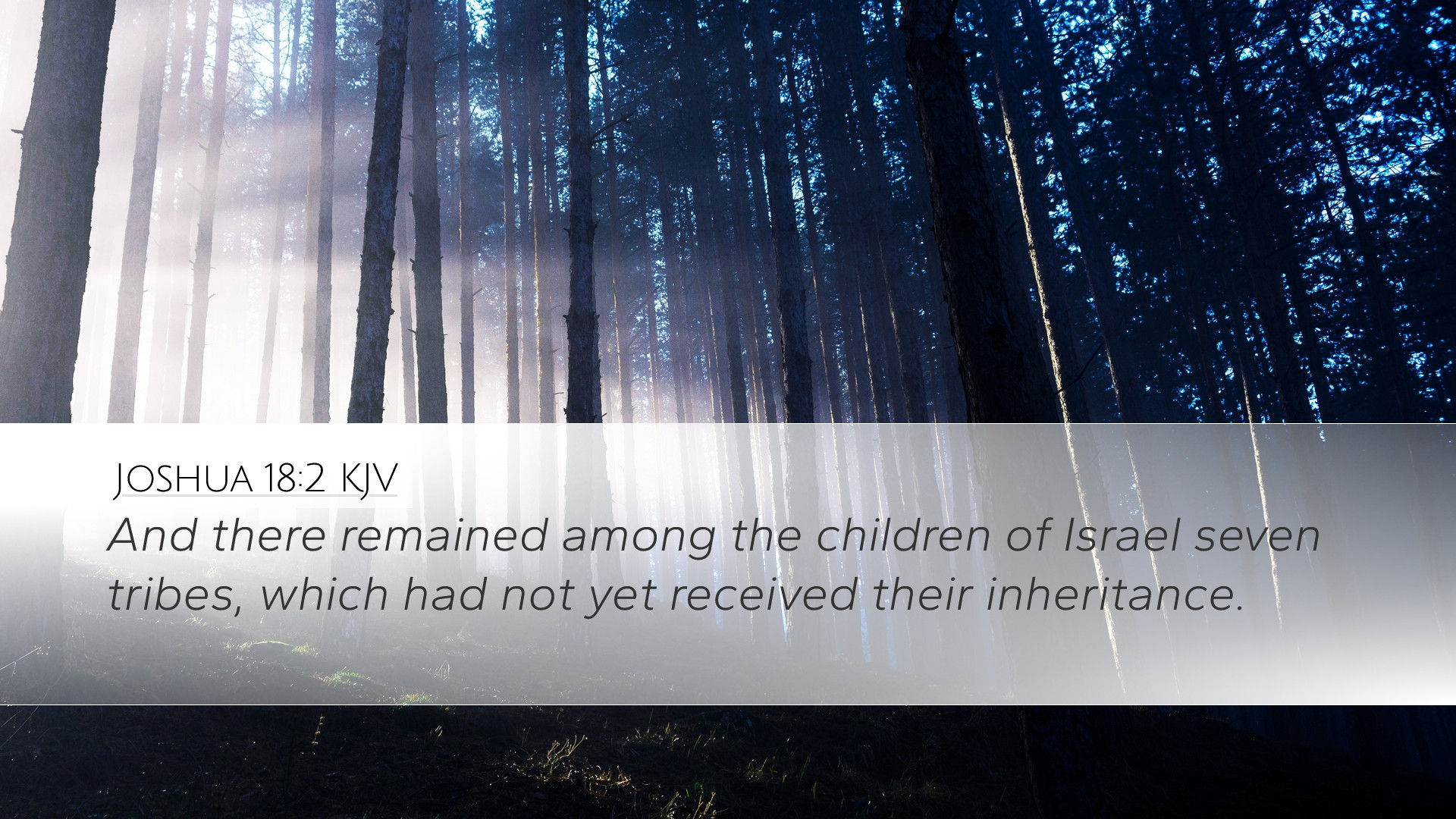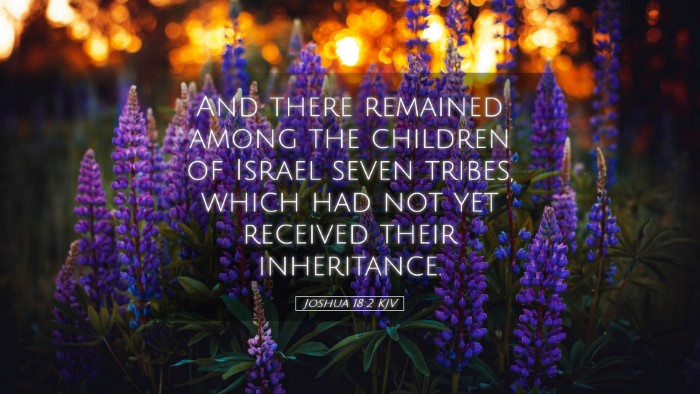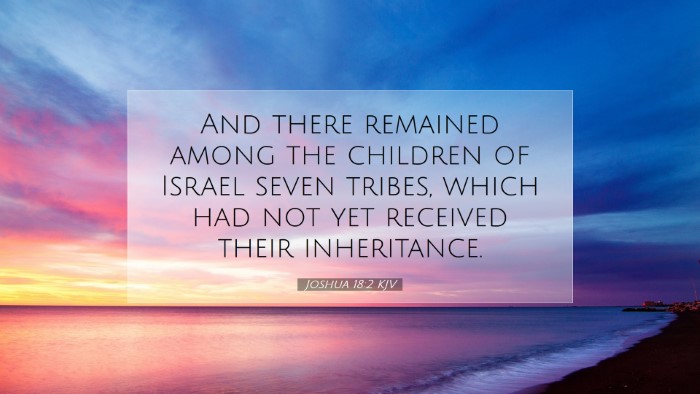Commentary on Joshua 18:2
The book of Joshua serves as a pivotal transition in the narrative of Israel, moving from the wilderness to the Promised Land. Joshua 18:2 specifically addresses the moment after the land has been apportioned, where a significant administrative and communal task remains: the allocation of land to the remaining tribes. This verse states:
"And there remained among the children of Israel seven tribes, which had not yet received their inheritance." (Joshua 18:2)
Contextual Background
To fully understand this verse, it is important to recognize the preceding context. After the conquest of Canaan, the land had been divided among the two and a half tribes that had settled on the east side of the Jordan River, and the remaining tribes were yet to receive their inheritance.
Historical Significance
Matthew Henry emphasizes that this verse highlights Israel's collective responsibility in distributing the land. It is a reminder that while God had given them the promise of inheritance, it was incumbent upon them to act faithfully in fulfilling His commands regarding the land allocated to each tribe.
Albert Barnes notes that the phrase "seven tribes" signifies a period of waiting and anticipation. The land had been graciously given to them, yet many had not taken possession of their inheritance due to either neglect or lack of initiative. This delay reflects a deeper theological and spiritual commentary on the nature of faith and action.
Spiritual Implications
The remaining tribes symbolize the lingering areas in our spiritual lives where God’s promises await realization. Adam Clarke interprets these seven tribes not just as historical figures but as representations of those who fail to claim the blessings promised by God. He questions the Christians today: How many are there among us who, having the promise of spiritual inheritance in Christ, still neglect to claim it due to doubt or complacence?
Lessons on Inheritance
- Faithfulness: The call to action is clear; awaiting God’s promise demands our participation.
- Courage: Possessing the land requires courage to step forward, just as the tribes must have felt uncertainty when stepping into unclaimed territory.
- Community Responsibility: The land distribution was a collective responsibility, highlighting the importance of communal support in the faith journey.
The Role of Leadership
As noted by both Henry and Barnes, effective leadership played a crucial role during this phase of the Israelites' history. Joshua, as leader, embodies the necessity of guiding the people toward their inheritance and providing the necessary instruction to ensure the successful distribution of land. His calling as a leader emphasizes not only authority but also responsibility towards the vision bestowed upon him by God.
Examination of Character
Adam Clarke further suggests examining the characters of the tribes who hesitated to claim their inheritance. He postulates that character deficiencies, such as fear, complacency, and division among themselves, must be confronted in order to embrace the promises. Studying these traits provides meaningful lessons for contemporary church communities, where unity and perseverance are critical for communal growth.
The Importance of Conquest
This verse not only reflects the physical allocation of land but also emphasizes the spiritual battles faced in conquering personal and communal struggles. The act of claiming one's inheritance is synonymous with engaging in spiritual warfare. Henry articulates that the success of Israel was contingent upon their faithfulness and willingness to engage their God-given inheritance fully.
Encouragement for Today’s Believers
In application, Joshua 18:2 serves as a call for modern believers to examine their own lives and congregations. Are there areas in which we remain “unclaimed,” where spiritual growth and blessings await our recognition and acceptance? Each individual must reflect on the different aspects of faith and action, while churches collectively assess their mission in assuring every member is nurtured to claim their inheritance of faith.
Conclusion
Thus, Joshua 18:2 stands as a profound reminder of the importance of collective faith, intentional leadership, and personal initiative in the Christian journey. The insights offered by Matthew Henry, Albert Barnes, and Adam Clarke encourage all believers to actively pursue the inheritance that God has promised, fostering courage and unity in both personal and community contexts. Let this be a timeless challenge that resonates through generations, urging us to seize the fullness of what God has already made available for His people.


